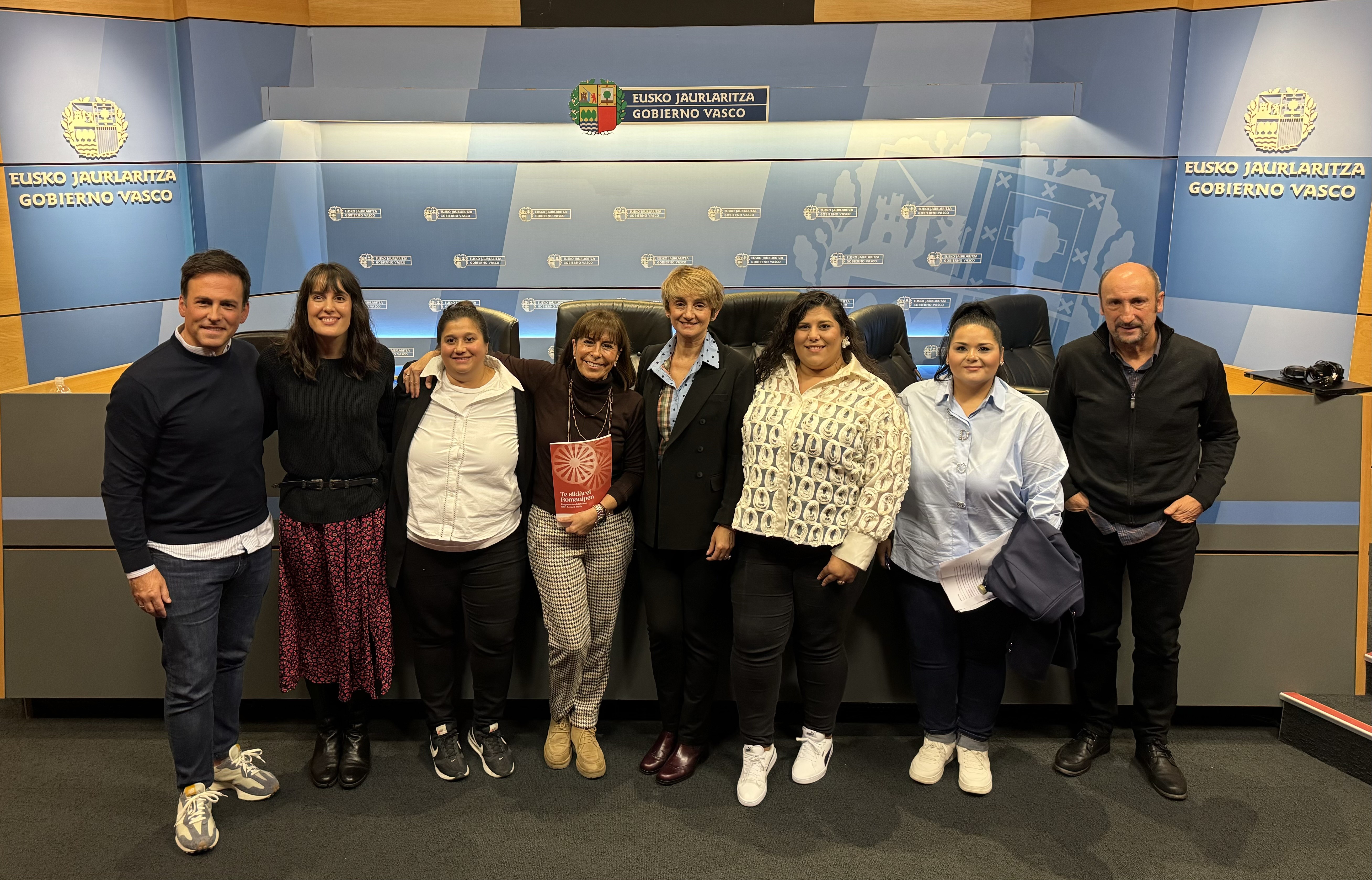
A didactic programme has been prepared to incorporate the history and culture of the Roma people into Compulsory Secondary Education. The project was created by the Department of Education of the Basque Government in collaboration with the UPV/EHU and the Association of Roma Women of the Basque Country Amuge.

On 15 November, on the eve of the Day of the Gypsy Basque People, the initiative has been presented in the Basque Government Hall of Events. Vice-Minister of Education, Lucía Torrealday, the director of Diversity and Educational Inclusion, Mikel Juaristi, and the university philologist and professor Araceli Cañadas attended the conference.
Cañadas is a Roma activist, promoter and professor of the Gitanos course in Spain. This is the only subject on Gypsy history and culture in the Spanish state. Cañadas has participated in the review of the didactic programming with historian David Martín, author of El Pueblo Gitano in Euskal Herria.
With the aim of incorporating the history and culture of the Gypsy People in the 1st and 2nd of the ESO, eight learning situations have been presented during the day, framed in the didactic programming.
1- Romanip: Historical approach to the origins and experiences of Roma people in Europe
2- Prediction: Stories of Roma resistance
3- Romanip in Euskadi: Gypsy people in the Basque Country
4- Te akharel pes: The 100 Gypsy People Pronouns
5- Barikane kultura hem (thai) or rromano gav: Privileged Culture and Roma People
6- Pass and rroman chibjasa and calo sar, hem and Roman Ethnolect scare: approach to the Roma, the Roma and the Spanish Gypsy ethnologist
7- Phenjalip: Gypsy sisterhood
8- O rromano gav ande o digitalno vaxti-i hem o virtual anticipos ganism kušdipen: The Roma people in the digital age and in the fight against online anti-Roma
They want the didactic material presented to be a further step in improving the coexistence in the Gypsy People. The Department of Education will finance the project and provide the necessary material to all secondary schools.
They have stressed that the objective is to make "diversity and interculturality" visible through the material created from the perspective of the fight against racism and feminist gypsies.